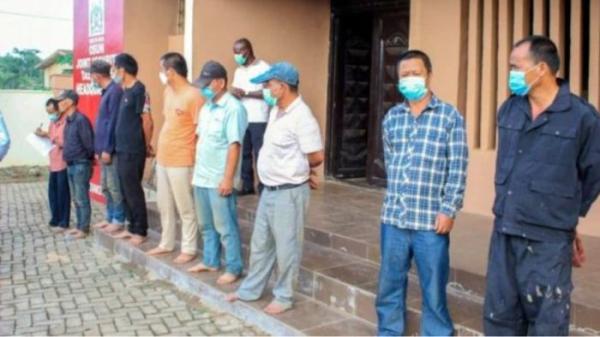
Achieving food security in Africa largely depends on growing high-yielding crops, such as rice, that are also well adapted to the continent’s harsh environment. Rice as a staple food and constitutes a major part of the diet in many countries in Africa. The demand for rice over the past three decades have consistently been on the increase and its growing importance is evident in the strategic food security planning policies of many continent like Africa.
Rice has become a strategic commodity in the African Economy. Research findings have it that as many as 21 of 39 rice-producing countries in Africa, import between 50 and 99 per cent of their rice. Nigeria though, has been rated the largest importer of rice in the world, the government has interfered in the rice economy and presently putting together reformation strategies to remove the constraint in the rice industry in other to stem the trend of over-reliance on imports and to satisfy the increasing demand for rice in Nigeria and Africa as a whole.
Nigeria is a verse country with a variety of agroecological zones and production system. Nigeria has fertile land and numerous studies in relation to Nigeria rice production system already exist. Nigeria however, can easily produce rice to feed the entire country and generate surplus for the African region through promotion of local rice production and various Agricultural Development Program.
Nigerian government is working extremely hard to ensure local rice production ranging from oscillation of import tariffs to import restriction to encourage the rice producing states in Nigeria like- Anambra, Ebonyi, Benue, Enugu, Imo, Katsina, Niger and Sokoto
Abakaliki in Ebonyi State is known to be the food basket of South-East Nigeria and the leading producer of processed rice, yam and cassava for decades. New technologies recently invented have enabled the modernization of the cities’ rice mill complex for improved quality of rice processing.
The Nigerian Government Agricultural Transformation Agenda on Rice production has promised to add several million tons of food to its yearly supply. To achieve this however, the government has resume plans to invest into massive rice production, the N365 billion previously set aside for importation annually, so as to encourage the local production of rice.
Nigeria has resolved to feed Africa through several reformative initiatives and provision of appropriate technologies, good infrastructure, favorable economic and institutional environment, and the preservation of natural resources, the four major factors that determines a successful agricultural production.
Over $1.25 billion have been committed towards the agricultural transformation agenda and report has shown that the domestic food supply grew by a total of 8.1 million metric tons (MT) in 2012
Lagos State recently empowered 400 youths in the ‘RICE FOR JOB’ initiatives and had increased commercial rice cultivation in Lagos state from 20 hectares to 1,200 hectares.
In Awka, Anambra State, also one of the major Rice producers in Nigeria have a memorandum of understanding (MOU) with the Vietnam Africa Agricultural Development Company (VAADC) in achieving mechanized production of rice.
In the North West zone, Zamfara alone are already on the verge of meeting the 450,00 tonnes target set for the entire North West Zone. Bakalori irrigation site of the state has projected 44,000 hectares of land to yield about 250,000 tonnes of paddy rice and then other complementary irrigation projects in the 14 local government areas of the state had the capacity to produce 200,000 tonnes of paddy rice, in the bid to achieve the much desired food security.
Nigeria Federal Government in the face of the prevailing global food crisis has resolved to rehabilitate the lower Anambra River Irrigation Rice Farm Project at Omoh in collaboration arrangement with the farmers to ensure the cultivation of 40 hectare of Fadama Land with rice. In addition, a new rice mill complex unit with the capacity of producing over 10,000 metric tons of high quality rice annually has been in place, enhancing production of the staple food for local consumption and exportation.
Meanwhile, private sector firms are growing and foreign direct investment is increasing with Nigerian farmers already benefiting from the once corrupted and ineffective Federal Government fertilizer. Government has also reassured the country would be self-sufficient in rice production with its farmers earning as much as $2 billion by 2015 as a result of rice value-chain development strategies
Nigeria has the potentials are, untapped arable land, the capacity to provide the required farm inputs that can robustly transform rice production. Nigeria has resolved not to allow food importation policies to kill research initiatives and farmers' enthusiasm to give national research breakthroughs a trial. Government has improved on funding of agricultural research systems. Nigeria is indeed heading to be a net exporter of rice too with New Rice for Africa (NERICA), a product of the cross breeding of Oriza glaberima African rice, with the Asian Oriza sativa.
Moreover, African rice has been given recognition in research centers because it is resistant to major rice diseases and pests in Africa. Our Ofada which is currently a popular menu in fast food centres can take us there too if rightly handled. Nigeria without doubt is the hope of Africa Food Security.






















